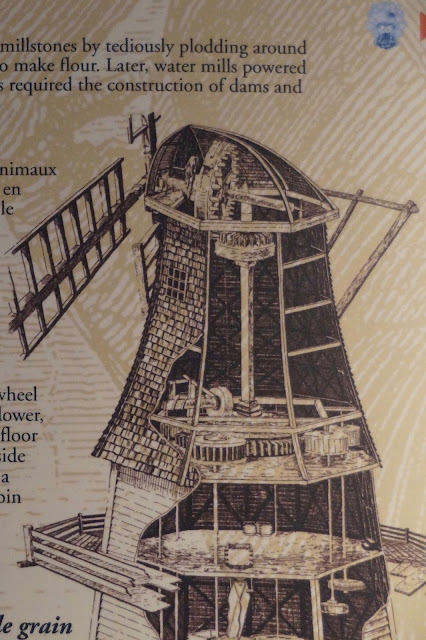At the extreme northwestern tip of Prince Edward Island, North Cape is the dividing point
between the Gulf of St. Lawrence and the Northumberland Strait.
The site is exposed to the winds of the surrounding waters
from almost every direction, making it an ideal location for wind-energy
research and testing at the Atlantic
Wind Test Site.
Converting wind into energy dates back to the Persians who
were the first to use windmills to pump water to irrigate parched land.
In the 17th century the Dutch used windmills to
drain the marshlands that kept much of the Netherlands submerged under water
for centuries.
In 1860, Daniel Halladay, a Connecticut mechanic, invented a
small windmill that sat on a tall wooden tower.
The above windmills pumped water from the ground for agricultural and household use.
Industrialization and climate change have stimulated our
need for renewable sources of energy. The wind blows everywhere
across the globe and has been harnessed for centuries.
North Cape is alive with birds and sea life.
Fishing has taken place here for generations. Lobster, cod, herring mackerel, ling (hake), halibut, scallops and rock crab, as well as many other species have been taken by local fishers.
As we walked the shoreline jellyfish littered the gravel. Fascinating to see but they can still sting even after they die.
There were almost as many birds as jellyfish.
PEI has many natural wonders, history and charm. It would take weeks to explore Canada's smallest province.















PEI is my favorite province. In 1977, I came very close to buying property and moving there. Remind me to tell you about it one day.
ReplyDeleteThose jelly fish are slightly different from the ones we saw on the Gulf of Mexico at Galveston, Texas. Interesting stuff.
Jellleeeefish. Fun to say, I must admit. I love the colour of the rocky beaches....
ReplyDelete